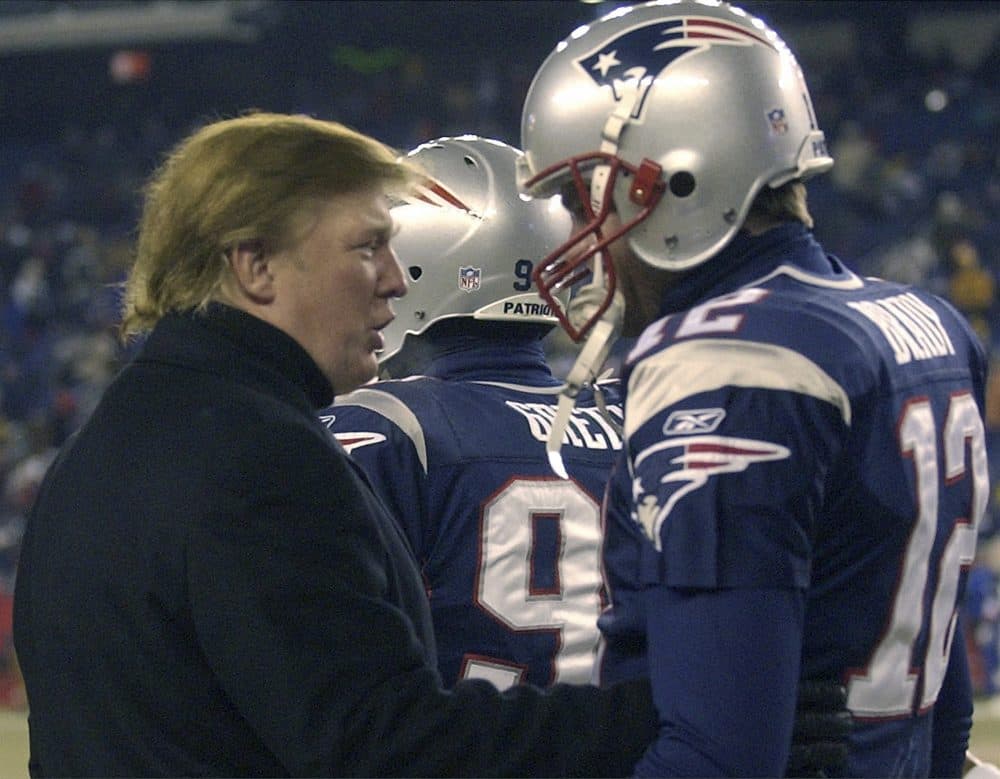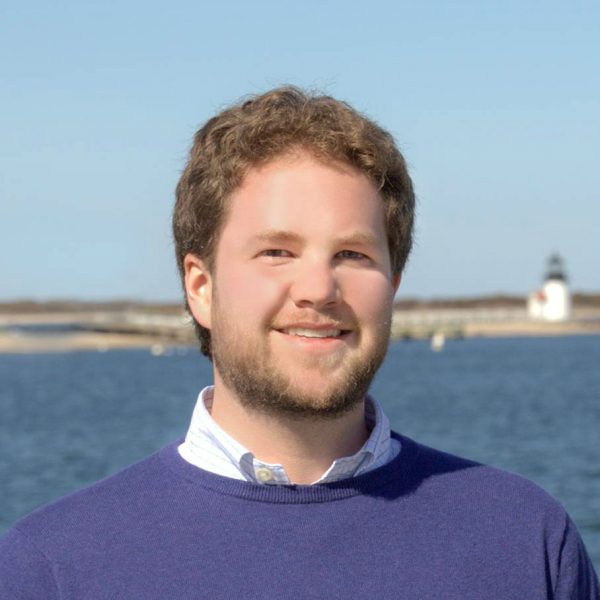Advertisement
Tom Brady Dodges Politics, But History Tells Us Athletes Should Take A Stand

COMMENTARY
There is no doubt that for his on-field heroics, Tom Brady deserves to be chiseled onto the Mount Rushmore of Boston sports figures. There is room for debate about who those other faces should be, but the short list has to include Bill Russell, Ted Williams and David Ortiz. I wish Brady would turn to them now for examples of how to be a hero off the field.
However much he may wish it, politics will not be rubbed out of the New England Patriots' past year. Ever since that conspicuous red hat appeared in Brady’s locker, the specter of Donald Trump has hung over this entire season. And at every turn, Brady has avoided the chance to take a stand.
The final insult came when Brady spoke about those teammates who would be skipping the traditional White House visit. Brady told Pro Football Talk Live that he understood their choices, citing the difficulties of schedules and the need for personal time once football has ended.
“It’s an off-season and these days are valuable for everybody,” Brady said. “You only get so much time with your family and friends and if people don’t want to go, they don’t want to go and that’s their choice.”
Ever since that conspicuous red hat appeared in Brady’s locker, the specter of Donald Trump has hung over this entire season. And at every turn, Brady has avoided the chance to take a stand.
Until now, Brady’s aw-shucks attitude toward the whole affair, coupled with a smile and a charming laugh, seemed like it would be enough to shield the quarterback from his obvious non-stance. But with this last comment, Brady revealed either a gross ignorance of the motivation for his teammates’ protest, or perhaps an even more egregious refusal to acknowledge it.
While tight end Martellus Bennett has been the unofficial leader of the protest, saying even before the Patriots won the Super Bowl that he would be skipping the yet-to-be-scheduled trip, it was safety Devin McCourty who in no uncertain terms provided the reason for joining with Bennett.
“I’m not going to the White House,” McCourty told TIME. “Basic reason for me is I don’t feel accepted in the White House.”
This is not about spending extra time with family or being unable to change vacation plans, as Brady suggests. The heart of this protest is the very real fight against systemic racism and the policies of the current White House. Brady’s title as the greatest quarterback is cemented, but what about his greater legacy? Beyond home runs and championships, there’s another reason Russell, Williams and Ortiz are remembered.
Advertisement
In the 1950s and '60s, Russell, the first African-American superstar of the NBA (and, in 1966, the first black coach in any professional sport), took part in the 1963 March on Washington at a time when many athletes remained silent. He was a vocal proponent of Civil Rights throughout the decades and received the Presidential Medal of Freedom in 2011 for his actions.
This is not about spending extra time with family or being unable to change vacation plans, as Brady suggests. The heart of this protest is the very real fight against systemic racism and the policies of the current White House.
In 1966, Williams used his Hall of Fame speech to address the travesty that Negro League players had yet to be included in Cooperstown. “I hope that one day Satchel Paige and Josh Gibson will be voted into the Hall of Fame as symbols of the great Negro players who are not here only because they weren’t given the chance.” Five years later, Paige was inducted into the Baseball Hall of Fame.
In September 2016, Ortiz addressed the vitriolic language then candidate Trump had used in describing Latinos as “a slap in the face.” Ortiz added in his Spanish-language interview with USA Today, “As Latin people we deserve respect, no matter where you’re from. And especially our Mexican brothers, who come here willing to do all the dirty work.”
In his comments, Brady said that visiting the White House in the past, “never really was a political thing, at least it never was for me. It was just always something that was a privilege to be able to do.”
But there is another type of privilege Brady needs to acknowledge, the kind of privilege his black and brown fellow Super Bowl champion teammates don’t have the luxury to hide behind.
